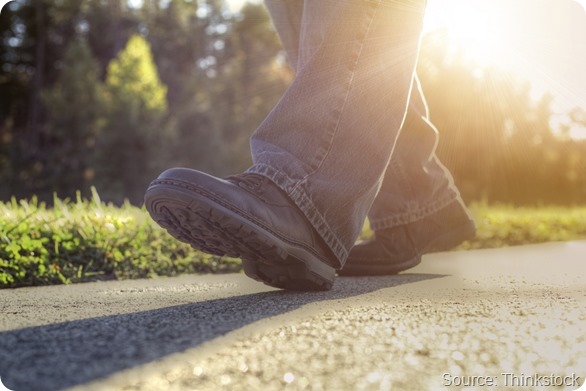A recent study indicates that walking can reduce the risks of premature death and the need for dialysis or kidney transplant among patients with kidney disease.

Globally, 60 million people suffer from chronic kidney disease (CKD) and physical inactivity among these patients is common.
A group of researchers from China Medical University Hospital in Taiwan studied over six thousand patients with stage 3 to 5 kidney disease between June 2003 and May 2013. The patients were on average 70 years old and were followed for a mean duration of 1.3 years. Walking was reported as being the most common form of exercise by 21% of patients.
Patients were assessed to determine whether walking more was associated with clinical benefits. It was found that those patients who walked regularly were 33% less likely to die and 21% less likely to need dialysis or a kidney transplant.
The benefits increased with increasing walking frequency. Patients who walked 1–2 times a week were 17% less likely to die during the study than those who did not walk. The corresponding values for patients who walked 3–4, 5–6, and ≥ 7 times per week were 28%, 58%, and 59%, respectively. Patients who walked 1–2 times a week were 19% less likely to need dialysis or a transplant during the study than those who did not walk. The corresponding values for patients who walked 3–4, 5–6, and ≥ 7 times per week were 27%, 43%, and 44%, respectively.
The presence of comorbid conditions, such as cardiovascular disease and diabetes, did not differ between patients who walked regularly and those who did not.
Dr Chou commented "We have shown that CKD patients with comorbidities were able to walk if they wanted to, and that walking for exercise is associated with improved patient survival and a lower risk of dialysis...A minimal amount of walking—just once a week for less than 30 minutes—appears to be beneficial, but more frequent and longer walking may provide a more beneficial effect."
Source:
Chou C-Y, et al. Association of Walking with Survival and Renal Replacement Therapy among Patients with CKD Stages 3-5. Clinical Journal of the American Society of Nephrology 2014. Available at http://cjasn.asnjournals.org/